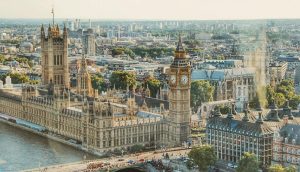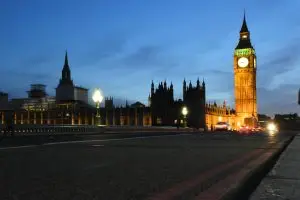The Prime Minister has surprised many commentators by persuading the European Union (EU) to reopen the Withdrawal Agreement and agree a new Brexit deal. Over this weekend, he may well surprise them further by getting that deal through Parliament, which will allow the UK to leave the EU on 31 October 2019.
The new Withdrawal Agreement faces significant hurdles to secure Parliamentary ratification
The reason it will be a surprise if the new Withdrawal Agreement passes is straightforward: The Government has no majority in the Commons. 21 Conservative MPs lost the whip after attempting to block a no deal Brexit.[1] This means that, even with the confidence and supply arrangement the Conservatives established with the DUP after the 2017 General Election, the Conservatives can no longer expect to have the numbers to win votes on motions and laws in the House of Commons. Additionally, the DUP has reacted negatively to the new Withdrawal Agreement. It claims the deal does not support ‘Northern Ireland’s long-term and constitutional interests and protect the integrity of the Union,’ and has therefore stated it ‘will be unable to support these proposals in Parliament.’[2]
Nonetheless, there is a growing mood at Westminster that we need to get Brexit done
Despite the considerable obstacles in front of getting Parliament to approve the new Withdrawal Agreement, Brexit fatigue may prompt MPs to support the new deal. Despite fears that the negative response of the DUP would turn Conservative Brexiteers against the deal, many prominent Brexiteers seem to be supporting it. Leading Brexiteer and Leader of the House of Commons, Jacob-Rees Mogg, has declared: ‘Boris Johnson has…delivered for this country, not by bringing back a deal that I and other Brexiteers have to hold our noses and reluctantly support…but by securing a genuinely exciting and hugely positive deal that true euro sceptics can – and should – enthusiastically support.’[3] Support can also be found beyond the ministerial ranks with outspoken backbencher Brexiteer, Andrew Bridgen, saying: ‘it looks like Brexit, it smells like Brexit.’[4] Several of the 21 MPs who had the Conservative whip removed for opposing a no deal Brexit have signalled their support for the new deal.[5]
While the Labour frontbench will oppose the Withdrawal Agreement, it has been unclear about whether it will discipline Labour MPs that vote to ratify it. When asked about this, the Shadow Chancellor, John McDonnell, simply stated ‘the whipping arrangements are left to the chief whip…whatever disciplinary action takes place, it will be determined by the chief whip.’[6] This followed Labour leader, Jeremy Corbyn, stating: ‘I believe in the power of persuasion rather than the power of threat,’[7] when asked whether he will remove the Labour whip from Labour MPs that back the deal. This may lead to Labour MPs feeling like voting for the Withdrawal Agreement will be consequence free for them. Something that could help the Prime Minister secure enough support for ratification.
With no real support for the alternatives, backing the deal may end up seeming the best option to MPs
So while it looks like it will be difficult to get Parliamentary ratification of the new Brexit deal this weekend, there are reasons to believe that the Prime Minister may once again surprise commentators. There is no great support for the alternatives on Saturday’s order paper: leaving with no deal; revoking article 50 and remaining in the EU; delaying for a General Election; and refusing to approve the deal until implementation legislation is passed. MPs may ultimately decide that backing the deal may be the best way to end the impasse in Parliament, especially with polling this week illustrating that more than half of Britons still support abiding by the 2016 EU referendum result,[8] and EU Commission President, Jean-Claude Juncker, suggesting that the EU is running out of patience with prolonging the Brexit process.[9]
Should a deal get done this weekend, companies should start to prepare themselves to engage with the Government on its asks for trade talks with the EU, as well as the possibility of either renewed energy behind the Government and its agenda, or a General Election that could significantly change the makeup of the House of Commons.
[1] PoliticsHome, 4 September 2019, link
[2] The Guardian, 17 October 2019, link
[3] Jacob Rees-Mogg, BrexitCentral, 18 October 2019, link
[4] Andrew Bridgen, 4News, 17 October 2019, link
[5] Spectator, Full list: the MPs backing Boris Johnson’s deal, 18 October 2019, link
[6] John McDonnell, Evening Standard, 18 October 2019, link
[7] Jeremy Corbyn, New European, 16 October 2019, link



